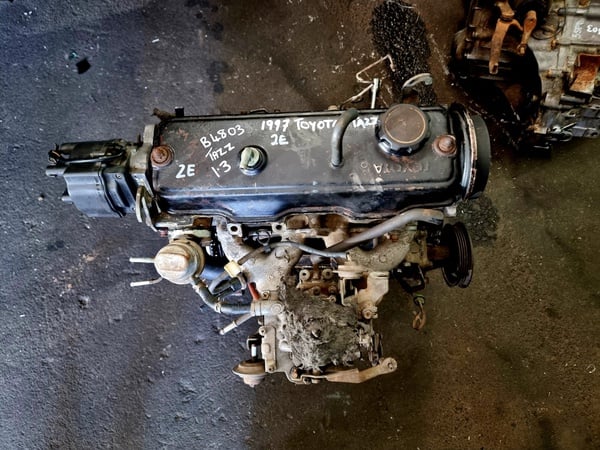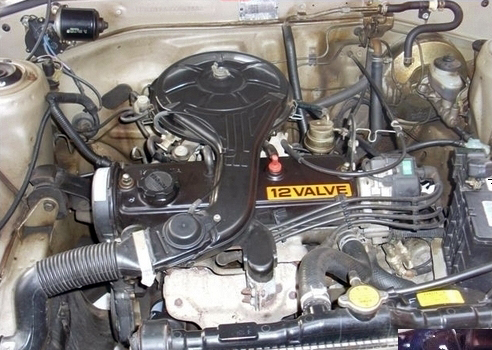Transform Your Automobile: Toyota Tazz Engine for Sale at Unbeatable Rates
Transform Your Automobile: Toyota Tazz Engine for Sale at Unbeatable Rates
Blog Article
Engine Buying Expert Tips on Picking the Right Engine for Your Details Requirements
Choosing the ideal engine for your particular needs includes an intricate interplay of variables that go beyond plain horse power numbers. By delving right into the complexities of power versus efficiency, evaluating gas rankings, and budgeting for long-lasting prices, one can genuinely maximize their engine selection.
Power Vs. Performance: Discovering the Equilibrium

When selecting an engine, it is vital to strike an equilibrium in between power and efficiency to satisfy your certain requirements efficiently. Power describes the engine's capacity to produce energy for propulsion, establishing variables like acceleration, towing ability, and general performance (Toyota Tazz Engine For Sale). On the other hand, performance associates with exactly how well the engine utilizes fuel to produce power, impacting elements such as fuel economic situation and ecological kindness
Accomplishing the appropriate balance between power and effectiveness is vital because an engine that is as well powerful may eat extreme fuel, leading to greater operating costs and unnecessary pressure on the setting. Conversely, an engine that prioritizes efficiency over power may cause slow-moving performance, especially in requiring situations like towing heavy loads or driving uphill.
To make an informed decision, think about elements such as your normal driving problems, the intended usage of the car, and your personal choices. By reviewing your demands and priorities, you can select an engine that strikes the best equilibrium between power and performance, making certain optimal efficiency while minimizing environmental influence and operating expenses.
Recognizing Engine Size and Kind

Furthermore, engine kind plays a critical function in figuring out the performance attributes of an engine. Typical engine types include inline engines, V engines, and rotary engines, each with its unique advantages and drawbacks. The engine type influences factors such as the engine's dimension, weight distribution, and power delivery. Comprehending the interaction between engine size and kind is vital in selecting an engine that straightens with your details demands and top priorities, whether it be power, effectiveness, or an equilibrium of both.
Consider Your Vehicle's Demands
Considering your vehicle's needs is a basic action in the engine choice process to make sure optimal performance and functionality. It is important to assess elements such as the meant use of the vehicle, its weight, pulling ability, and gas performance needs. If you are looking for an engine for a sturdy vehicle that will certainly be used for towing, you will require a powerful engine with find this high torque capabilities. On the various other hand, if you are picking an engine for a portable car mostly used for city commuting, fuel performance may be a more critical element to consider.

Evaluating Gas Performance Scores
Analyzing gas effectiveness ratings is a crucial element of selecting the best engine for your lorry, making certain price financial savings and environmental sustainability. Gas efficiency rankings, generally determined in miles per gallon (MPG) for fuel engines or kilowatt-hours per 100 miles (kWh/100 miles) Learn More Here for electrical engines, show how far an automobile can take a trip on a details amount of gas or electrical energy. Higher MPG or lower kWh/100 miles worths represent extra effective engines, equating to minimized gas expenses and reduced carbon discharges.
Furthermore, compare various engine options within the exact same car course to recognize the most economical choice. Aspects such as engine dimension, weight, aerodynamics, and hybrid or electrical capabilities can all influence gas effectiveness.
Budgeting for Long-Term Expenses
Purposefully planning for long-lasting expenses is vital when picking an engine, making sure financial sustainability over the lorry's life expectancy. While the preliminary purchase price of an engine is a significant variable, it is vital to think about the long-term prices linked with maintenance, repairs, and gas intake.
Furthermore, looking into the accessibility and right here cost of substitute parts for the chosen engine is vital in budget plan preparation. By carefully budgeting for these long-lasting expenditures and factoring them into the decision-making procedure, individuals can choose an engine that not only satisfies their immediate demands however also remains cost-effective throughout its lifespan.
Verdict
Finally, selecting the best engine for your specific requirements calls for stabilizing power and performance, understanding engine size and kind, considering your vehicle's demands, examining gas performance scores, and budgeting for long-lasting expenses. By carefully thinking about these factors, you can make certain that you select an engine that meets your needs and supplies optimum efficiency for your automobile.
To even more fine-tune the choice procedure of an engine that strikes the optimal equilibrium in between power and efficiency, it is crucial to dive right into the ins and outs of recognizing engine dimension and kind. Engine size refers to the overall quantity of air and gas that can be pushed through the engine cylinders. Usual engine types consist of inline engines, V engines, and rotating engines, each with its one-of-a-kind advantages and disadvantages. Comprehending the interplay between engine size and kind is vital in choosing an engine that aligns with your particular demands and priorities, whether it be power, efficiency, or an equilibrium of both.
Fuel effectiveness scores, typically gauged in miles per gallon (MPG) for gasoline engines or kilowatt-hours per 100 miles (kWh/100 miles) for electrical engines, indicate just how far a car can travel on a particular amount of fuel or power.
Report this page